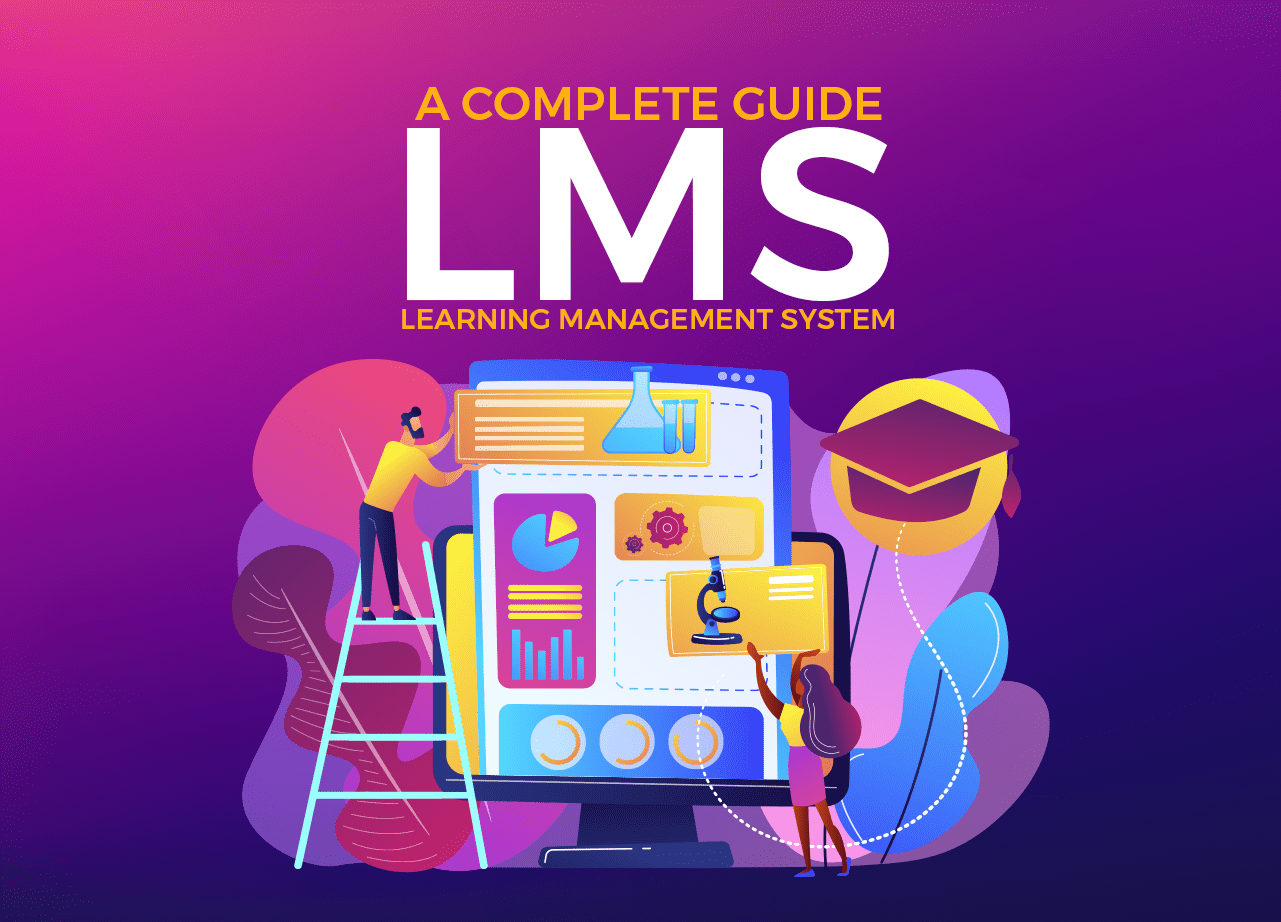Employee training and development is not only advantageous but essential for minimizing organizational skills gaps, keeping talent, and remaining competitive, according to company leaders, learning and development specialists, and staff members. However, according to Gartner, 64% of managers do not believe their staff are prepared for future skill requirements, and 70% of employees feel they lack the abilities necessary to perform their current positions effectively.
A corporate learning management system (LMS) from a top LMS development company is among the best investments you can make to revamp your organizational learning strategy and fill those gaps. Learning and development in the workplace are evolving quickly. You’re living in the past if you’re still flying trainers to your headquarters, housing them in hotels, providing extensive in-person training, and still getting no results.
What is an Organizational LMS?
A corporate LMS assists businesses in planning, monitoring, and managing their training initiatives for personnel, clients, and other external partners. Individualized training programs are managed by corporate LMS packages for onboarding, development, and compliance training needs.
A corporate LMS is used by organizations to assign courses to staff members or external end users, and to monitor learners’ progress as they finish the lessons and tests in those courses. These courses can be made using either the LMS’s built-in tools or a different course creation program.
Corporate LMS serves as a consolidated repository for learning materials for administrators and staff, allowing businesses to more effectively provide materials for customer training or employee development. Courses that were produced using third-party course authoring software can frequently be hosted by corporate LMS packages. An integrated human resource management system could also include a corporate LMS.
Types of Corporate Learning Management System
LMS systems have two main differences: open-source vs. proprietary software and cloud-based vs. local hosting. Let’s explore these LMS categories:
1. Open-source LMSs
These are license-free and ideal for nonprofits. They can be customized but require IT expertise and ongoing server expenses. Open EdX is a popular choice, offering easy content creation and platform customization with XBlock technology.
2. Commercial LMSs
Proprietary training software comes with license fees and full support from corporate LMS vendors. They offer both installation and cloud-based SaaS options.
3. Locally hosted LMSs
are those that you host and keep up yourself. High setup costs and a particular license duration are prerequisites. Your IT department is in charge of maintaining and protecting it.
4. Cloud-based LMSs
Cloud-based LMSs hosted by suppliers are accessible from anywhere, with no need for complex IT. The vendor maintains, updates, and secures the system.
Top 6 Advantages of Using an LMS for Business
1. Information from a Single Source
The importance of keeping all of your training materials in one place cannot be overstated. Employees are aware that all they need to continue their education is to easily connect onto the LMS. They don’t have to sign into various systems for various kinds of training. They don’t have to search through their email inboxes to find the location of the following video or guide.
And we’ve all experienced the frustration of not being able to locate the files we’re looking for. A learning management system from a trusted LMS development company makes sure you always know where to search for information on training, development, products, HR policy, and anything else.
Central storage streamlines processes between departments, like sales and marketing. When they maintain separate documents, it leads to miscommunication. A single source of truth prevents this issue.
2. Encourage social and cooperative learning
Employees prefer learning alongside their peers, according to the 2021 workplace learning report from LinkedIn learning 91% of the 2,393 employees surveyed stated they were more successful when they learned together, and 92% said it gave them a sense of community.
Even when your employees aren’t in the same room together, an LMS makes it simple to develop social learning experiences. The use of collaborative technologies like discussion boards, study groups, and online classrooms allows students to learn from each other’s experience and knowledge while also sharing their own.
The ability for employees from other offices and departments to interact with and learn from coworkers they might not have otherwise encountered is another advantage of collaborative technologies. This can enhance cross-functional communication and collaboration at work.
3. Reduced Expenses
A corporate LMS lowers expenses for things like lodging, meals, and transportation. However, there are non-monetary savings as well, such as flexibility in learning at your own pace. An LMS makes training accessible and scalable regardless of where your employees are because you don’t need to build new classrooms to accommodate more students.
Your staff will be able to balance work time with professional development time thanks to personalized learning with an LMS for corporate training, which prevents them from investing hours in training they don’t need. Learners can benefit most from their learning when using collaborative tools and easy interfaces, which increase uptake and engagement.
4. Performance Evaluation
How do you tell who has finished the training when employees can access the materials on their own time and from anywhere in the world? Training evaluation is a difficult beast to master. However, a corporate LMS has sophisticated performance tracking systems that keep management informed of the status of training.
You can view details about every employee, including the training they’ve begun, finished, and the outcomes of any subsequent evaluations. Managers can assess how effectively staff are learning the material by giving them follow-up tests.
5. Scalability
A lot of problems confront expanding enterprises. It takes time to train current employees in new capabilities, onboard new team members, update documentation, etc. High stakes are involved. Your business will have setbacks if your personnel are unable to keep up with its growth.
Comparatively speaking, LMS for corporate training is far simpler to scale than conventional training programs. You merely need to create extra accounts; you don’t need to print more booklets. New training may be developed, tested, and implemented fast.
And you’ll frequently discover that growing the system is more economical than you might anticipate due to the pricing mechanisms of a corporate LMS.
6. Flexible learning
Finding the time to fit in with staff learning is the biggest difficulty, according to LinkedIn Learning’s 2018 Workplace Learning Report. By making corporate training and development programs accessible to your employees anywhere, at any time, and on any device, an LMS tackles this issue head-on.
Employees don’t have to wait for the next opportunity that works into their busy schedules to build the skills they need to conduct their jobs effectively because of the improved access to more learning opportunities on an as-needed basis provided by this flexibility.
Summing Up
Employers boost employee skills through corporate learning, which also enhances teamwork, welcomes new hires, and tracks progress. When creating an LMS, you can choose between using an existing system or building a custom one. Smaller teams prefer ready-to-use LMSs, while large companies with long-term goals opt for custom solutions.
Learn more about the many advantages of establishing a cutting-edge Learning Management System (LMS) for your company. At Communication Crafts, we take pride in being the foremost LMS development company, specializing in creating tailored solutions to elevate your business to its full potential.
Elevate Your LMS Game!
 Blog Communication Crafts
Blog Communication Crafts




